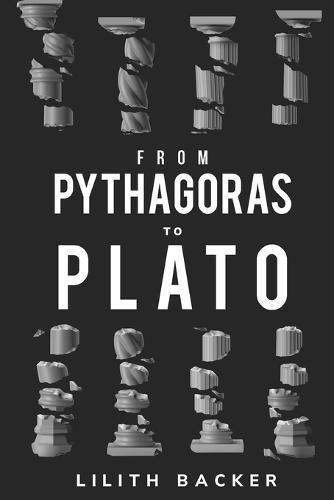Readings Newsletter
Become a Readings Member to make your shopping experience even easier.
Sign in or sign up for free!
You’re not far away from qualifying for FREE standard shipping within Australia
You’ve qualified for FREE standard shipping within Australia
The cart is loading…






This title is printed to order. This book may have been self-published. If so, we cannot guarantee the quality of the content. In the main most books will have gone through the editing process however some may not. We therefore suggest that you be aware of this before ordering this book. If in doubt check either the author or publisher’s details as we are unable to accept any returns unless they are faulty. Please contact us if you have any questions.
Pythagoreanism was a philosophy that existed before the time of Socrates, founded by a Greek philosopher named Pythagoras. Those who find the name familiar often identify it with the Pythagorean Theorem from mathematics or possibly Pythagorean intervals in music. This is because Pythagoras and the followers of his philosophy made important discoveries in music and mathematics. How much of this is actually the work of Pythagoras himself as opposed to the work of his followers is unclear. In fact, little is known about Pythagoras himself since there are very few firsthand sources from the time period in which he lived (ca. 570 - ca. 490). Looking past all the legends about his life, most of our sources indicate that Pythagoras was a citizen of the Greek city state of Samos (near the coast of modern-day Turkey before fleeing his home due to the reign of a dictator name Polycrates. Most of our sources come from followers who were so far removed from the original movement, they were dubbed Neopythagoreans. Many of the things Neopythagoreans said about Pythagoras are mythological in nature. Some of the legends have him communicating with animals, living multiple lives, being in two places at once, even owning a Thracian god (Zalmoxis) as a slave.
$9.00 standard shipping within Australia
FREE standard shipping within Australia for orders over $100.00
Express & International shipping calculated at checkout
Stock availability can be subject to change without notice. We recommend calling the shop or contacting our online team to check availability of low stock items. Please see our Shopping Online page for more details.
This title is printed to order. This book may have been self-published. If so, we cannot guarantee the quality of the content. In the main most books will have gone through the editing process however some may not. We therefore suggest that you be aware of this before ordering this book. If in doubt check either the author or publisher’s details as we are unable to accept any returns unless they are faulty. Please contact us if you have any questions.
Pythagoreanism was a philosophy that existed before the time of Socrates, founded by a Greek philosopher named Pythagoras. Those who find the name familiar often identify it with the Pythagorean Theorem from mathematics or possibly Pythagorean intervals in music. This is because Pythagoras and the followers of his philosophy made important discoveries in music and mathematics. How much of this is actually the work of Pythagoras himself as opposed to the work of his followers is unclear. In fact, little is known about Pythagoras himself since there are very few firsthand sources from the time period in which he lived (ca. 570 - ca. 490). Looking past all the legends about his life, most of our sources indicate that Pythagoras was a citizen of the Greek city state of Samos (near the coast of modern-day Turkey before fleeing his home due to the reign of a dictator name Polycrates. Most of our sources come from followers who were so far removed from the original movement, they were dubbed Neopythagoreans. Many of the things Neopythagoreans said about Pythagoras are mythological in nature. Some of the legends have him communicating with animals, living multiple lives, being in two places at once, even owning a Thracian god (Zalmoxis) as a slave.